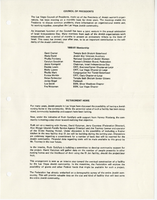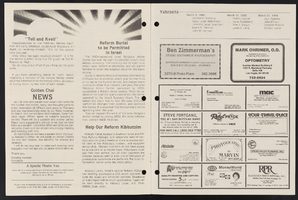Search the Special Collections and Archives Portal
Search Results
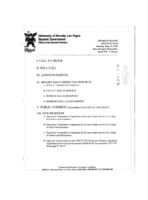
Meeting minutes for Consolidated Student Senate University of Nevada, Las Vegas, May 13, 1996
Date
1996-05-13
Archival Collection
Description
Includes meeting agenda and minutes.
Text
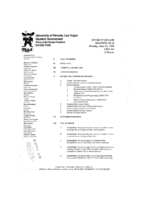
Meeting minutes for Consolidated Student Senate University of Nevada, Las Vegas, June 21, 1999
Date
1999-06-21
Archival Collection
Description
Includes meeting agenda and minutes, along with additional information about bills, bylaws, advertisements, and maintenance agreements.
Text
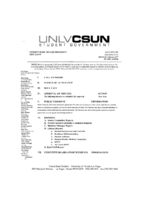
Meeting minutes for Consolidated Student Senate, University of Nevada, Las Vegas, February 25, 2008
Date
2008-02-25
Archival Collection
Description
Includes meeting agenda, along with additional information about resolutions, bills, and bylaws.
Text
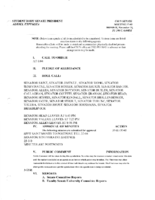
Meeting minutes for Consolidated Student Senate, University of Nevada, Las Vegas, November 13, 2006
Date
2006-11-13
Archival Collection
Description
Includes meeting agenda, with additional information about resolutions.
Text
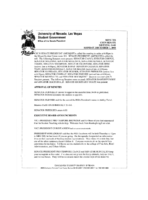
Meeting minutes for Consolidated Student Senate, University of Nevada, Las Vegas, December 01, 2003
Date
2003-12-01
Archival Collection
Description
Includes meeting minutes. CSUN Session 34 Meeting Minutes and Agendas.
Text

Meeting minutes for Consolidated Student Senate, University of Nevada, Las Vegas, October 22, 2001
Date
2001-10-22
Archival Collection
Description
Includes meeting minutes and agenda, along with additional information about bylaws. CSUN Session 31 (Part 2) Meeting Minutes and Agendas.
Text
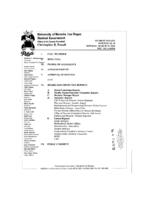
Meeting minutes for Consolidated Student Senate, University of Nevada, Las Vegas, March 10, 2003
Date
2003-03-10
Archival Collection
Description
Includes meeting minutes and agenda, along with additional information about funding requests and agreements.
Text
Doug Thornley (Reno, City Manager) oral history interview conducted by Kelliann Beavers: transcript
Date
2022-10-20
Archival Collection
Description
From the Lincy Institute "Perspectives from the COVID-19 Pandemic" Oral History Project (MS-01178) -- Government agency interviews file.
Text
Pagination
Refine my results
Content Type
Creator or Contributor
Subject
Archival Collection
Digital Project
Resource Type
Year
Material Type
Place
Language
Records Classification

